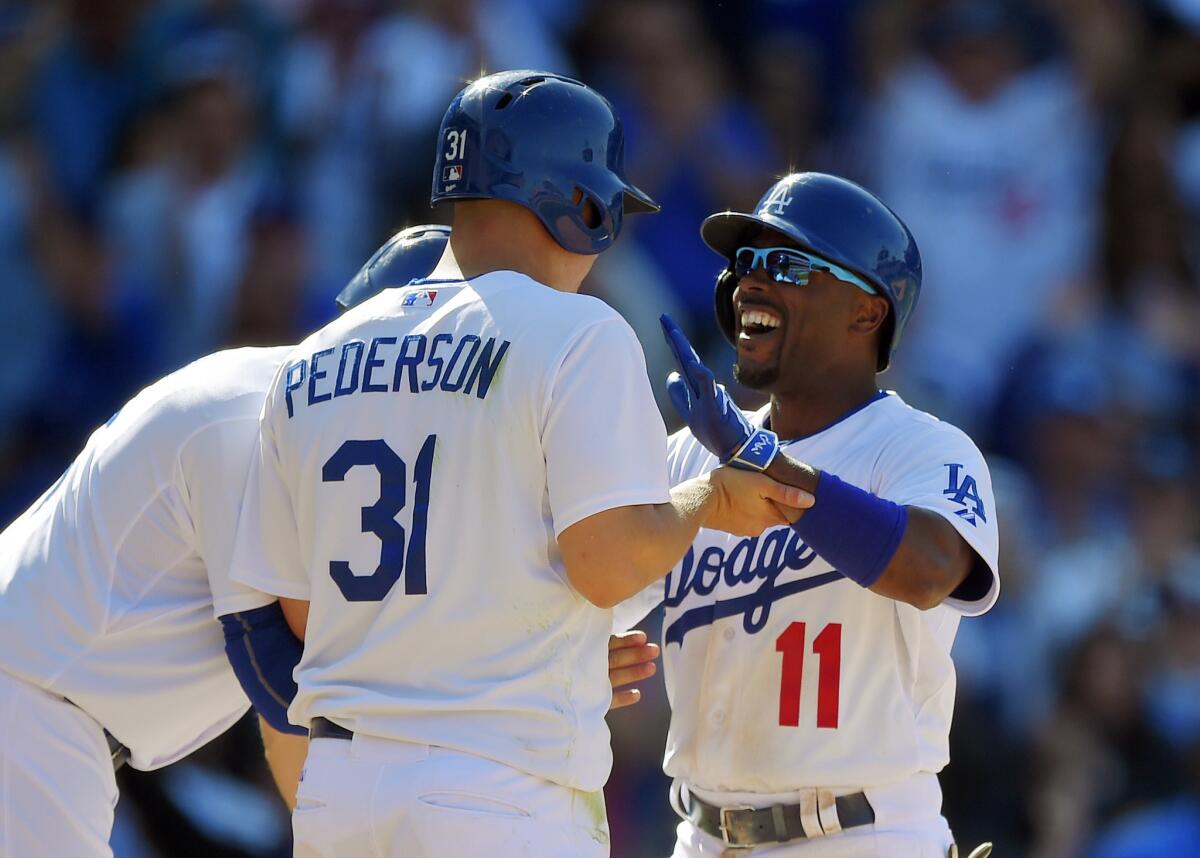Editorial: Dodgers TV blackout may loosen team’s grip on fans

- Share via
Here’s some news that nearly three out of every four Angelenos may have missed: The Dodgers opened their season Monday by beating the San Diego Padres, 6-3. It’s not just that the game was played midday, while much of the city was still busy earning a living. It’s that the game was televised on SportsNet LA, which reaches less than 30% of the homes in Dodger Country. That’s a travesty for fans, but it may be part of the solution to the larger problem of ever-escalating pay-TV fees.
The partial blackout, now in its second year, results from the sky-high price that SportsNet LA’s distributor, Time Warner Cable, is demanding from other cable and satellite TV operators. The consulting firm SNL Kagan estimates the price at nearly $5 a month for every pay-TV subscriber, regardless of whether they watch the channel. Almost every cable and satellite operator in Southern California has balked, and the impasse isn’t likely to be resolved until federal regulators decide whether to approve Comcast’s purchase of Time Warner Cable and AT&T’s purchase of DirecTV.
Dodgers fans are caught in the middle of a fight that’s been a long time coming. Major League teams in various sports have been pushing up the licensing fees for their games by leaps and bounds, and the popularity of the games has allowed networks and pay-TV operators to pass the costs along to their subscribers. But as the fees for ESPN and regional sports networks have risen above $13 a month in Southern California, the number of pay-TV customers has been falling, making cable and satellite operators more resistant to price hikes. When Time Warner Cable asked for the moon for SportsNet LA, other pay-TV companies sought instead to carry the channel in a separate sports package whose costs would be borne only by those who sign up for it — a welcome (if not yet successful) blow against the standard practice of bundling channels into fat, costly tiers. May it be the first of many.
The Dodgers don’t seem to mind the disruption. They’re collecting more than $200 million a year from Time Warner Cable as part of an $8.35-billion, 25-year deal for the rights to the new channel. That’s almost four times as much as the bloated sum the owners, Guggenheim Baseball Management, paid in 2012 to buy the club from the McCourts. One reason they paid so richly for the club was because they saw the opportunity to command a king’s ransom for the TV rights, and Time Warner Cable made their bet pay off.
The team sold a league-leading 3.8 million tickets last year and 3 million this season, so maybe it can afford to ignore the impasse. But the partial blackout has led to far fewer people watching the team’s games on TV, a drop that could weaken the Dodgers’ grip on the region’s sports fans. The longer the blackout continues, the more tenuous that grip becomes.
Follow the Opinion section on Twitter @latimesopinion and Facebook
More to Read
A cure for the common opinion
Get thought-provoking perspectives with our weekly newsletter.
You may occasionally receive promotional content from the Los Angeles Times.










